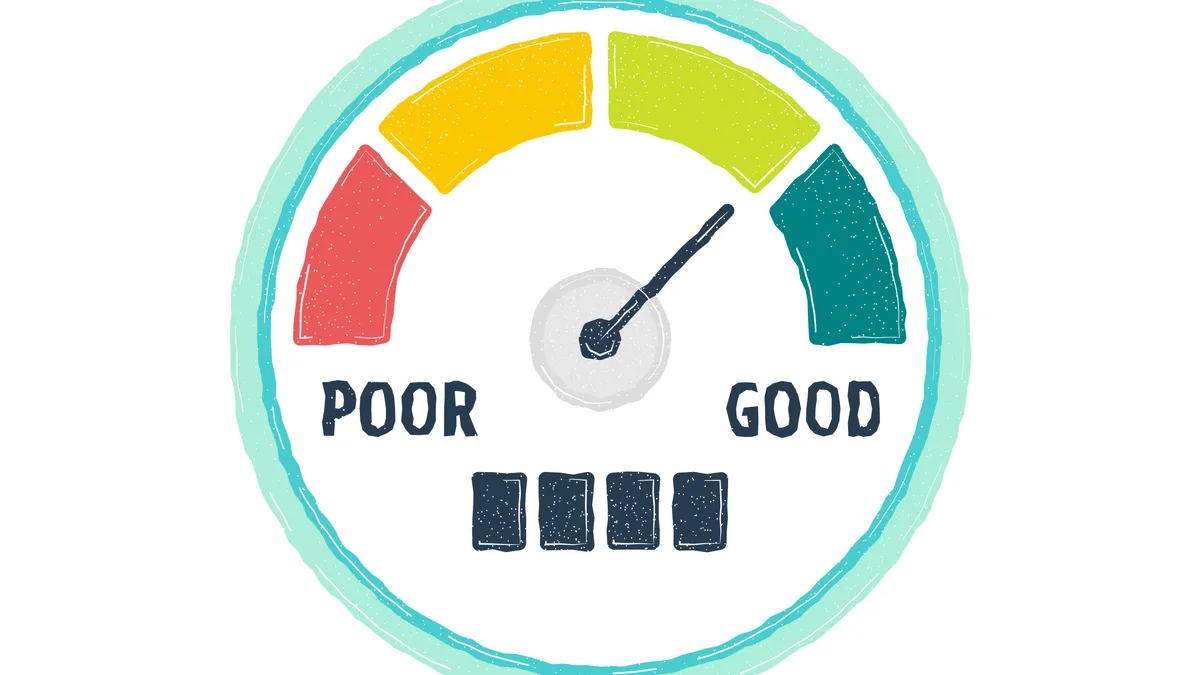

Finance
How Much Does A Credit Inquiry Hurt Your Score
Published: March 4, 2024
Learn how credit inquiries impact your score and get insights into managing your finances wisely. Understand the effects of finance-related inquiries on your credit health.
(Many of the links in this article redirect to a specific reviewed product. Your purchase of these products through affiliate links helps to generate commission for LiveWell, at no extra cost. Learn more)
Table of Contents
Introduction
Welcome to the world of credit scores and inquiries! If you’ve ever applied for a loan, credit card, or mortgage, you’ve likely encountered the term “credit inquiry” and wondered about its impact on your credit score. Understanding the nuances of credit inquiries and their effects is crucial for maintaining a healthy credit profile.
When you apply for credit, the lender will typically request a copy of your credit report from one or more of the major credit bureaus. This request, known as a credit inquiry, allows the lender to assess your creditworthiness and make informed decisions about extending credit to you. While credit inquiries are a necessary part of the lending process, they can have varying impacts on your credit score.
In this comprehensive guide, we’ll delve into the world of credit inquiries, exploring their types, effects on your credit score, and strategies for managing them effectively. By the end of this journey, you’ll have a clear understanding of how credit inquiries influence your credit score and how to navigate the credit application process with confidence.
What Is a Credit Inquiry?
A credit inquiry, also known as a credit pull or credit check, occurs when a third party, such as a lender or creditor, requests to view your credit report from one of the major credit bureaus – Equifax, Experian, or TransUnion. The purpose of the credit inquiry is to assess your creditworthiness and determine the risk of extending credit to you.
There are two primary types of credit inquiries: hard inquiries and soft inquiries. Hard inquiries typically occur when you apply for a new line of credit, such as a credit card, auto loan, mortgage, or personal loan. These inquiries are initiated with your consent and are recorded on your credit report. Lenders use hard inquiries to make lending decisions and evaluate your credit management habits.
On the other hand, soft inquiries occur when your credit report is accessed for non-lending purposes, such as pre-approved credit offers, background checks, or when you check your own credit report. Unlike hard inquiries, soft inquiries do not impact your credit score and are not visible to lenders reviewing your credit report for lending decisions.
Understanding the distinction between hard and soft inquiries is essential, as it enables you to gauge the potential impact of credit inquiries on your credit score. While hard inquiries can affect your credit score, soft inquiries have no bearing on your creditworthiness and are not factored into credit scoring models.
Types of Credit Inquiries
Credit inquiries can be broadly categorized into two main types: hard inquiries and soft inquiries. Each type serves distinct purposes and has varying effects on your credit score.
- Hard Inquiries: Hard inquiries, also referred to as hard pulls, occur when you apply for new credit. These inquiries are initiated with your consent and are typically associated with lending decisions. Examples of situations that may result in hard inquiries include applying for a credit card, mortgage, auto loan, or personal loan. Hard inquiries are recorded on your credit report and may impact your credit score, albeit temporarily.
- Soft Inquiries: Soft inquiries, or soft pulls, occur when your credit report is accessed for non-lending purposes. These inquiries are not initiated as a result of a credit application and do not impact your credit score. Common examples of soft inquiries include pre-approved credit offers, background checks, and when you check your own credit report. Unlike hard inquiries, soft inquiries are not visible to lenders reviewing your credit report for lending decisions.
It’s important to note that while hard inquiries can affect your credit score, the impact is typically minimal and short-lived. In contrast, soft inquiries have no bearing on your credit score and are not factored into credit scoring models. Understanding the distinction between hard and soft inquiries empowers you to make informed decisions when applying for credit and to monitor your credit report effectively.
How Much Does a Credit Inquiry Hurt Your Score?
The impact of a credit inquiry on your credit score is a common concern for individuals navigating the credit application process. When a hard inquiry is generated as a result of applying for new credit, it may lead to a temporary dip in your credit score. The specific impact of a single hard inquiry can vary, but it typically results in a minor reduction of a few points from your score.
It’s important to understand that while hard inquiries can influence your credit score, their impact is relatively modest and short-lived. Credit scoring models are designed to account for the fact that consumers may shop for the best loan terms, such as when seeking a mortgage or an auto loan, by allowing for multiple inquiries within a certain timeframe to be treated as a single inquiry. This practice helps mitigate the potential negative impact on your credit score when rate shopping for a loan.
Additionally, the impact of a hard inquiry is often overshadowed by other factors that carry more weight in credit scoring models, such as payment history and credit utilization. For individuals with a limited credit history or few accounts, the impact of a single hard inquiry may be more noticeable compared to those with well-established credit profiles.
It’s essential to approach credit inquiries judiciously and apply for new credit only when necessary. While the impact of a single hard inquiry is minimal, multiple inquiries within a short timeframe can collectively have a more pronounced effect on your credit score. By understanding how credit inquiries influence your credit score, you can make informed decisions when seeking new credit and take proactive steps to manage your credit profile effectively.
Factors That Impact the Impact of Credit Inquiries
Several factors come into play when assessing the impact of credit inquiries on your credit score. Understanding these factors can provide valuable insights into how credit inquiries may affect your overall credit profile.
- Number of Inquiries: The number of recent hard inquiries on your credit report can influence the impact on your credit score. While a single inquiry may result in a minor dip, multiple inquiries within a short timeframe can have a more significant impact, signaling a higher level of credit-seeking behavior.
- Credit History: Your credit history and overall credit management habits also play a role in determining the impact of credit inquiries. Individuals with shorter credit histories or fewer accounts may experience a more noticeable impact from a single inquiry compared to those with well-established credit profiles and a longer history of responsible credit use.
- Credit Mix: The types of credit accounts you have, such as credit cards, mortgages, and installment loans, can influence the impact of credit inquiries. Lenders may assess the diversity of your credit accounts and how recent inquiries align with your overall credit management.
- Rate Shopping Considerations: When shopping for the best loan terms, such as when seeking a mortgage or an auto loan, credit scoring models typically consider multiple inquiries within a certain timeframe as a single inquiry. This practice helps minimize the impact of rate shopping on your credit score.
- Credit Utilization: The level of credit utilization, or the amount of available credit you’re using, is a crucial factor in credit scoring. While credit inquiries themselves do not directly impact credit utilization, they can indirectly influence your credit score if they lead to new credit accounts being opened and affect your overall credit utilization ratio.
By considering these factors, you can gain a clearer understanding of how credit inquiries may impact your credit score and take proactive steps to manage your credit effectively. Monitoring your credit report regularly and being mindful of your credit application activities can help you maintain a healthy credit profile while navigating the lending landscape.
How Long Do Credit Inquiries Affect Your Score?
The impact of credit inquiries on your credit score is not permanent, and their effects typically diminish over time. Hard inquiries, which result from credit applications, are factored into your credit score calculations but have a limited duration of influence.
In general, hard inquiries remain on your credit report for about two years from the date they appear. However, their impact on your credit score is most pronounced in the first few months after they occur. During this initial period, a hard inquiry may lead to a minor, temporary dip in your credit score. As time passes, the impact of the inquiry diminishes, and your score is likely to recover, especially if you maintain responsible credit management practices.
Credit scoring models are designed to consider the recency of inquiries, meaning that the impact of a hard inquiry diminishes as it ages. After the initial period, the inquiry’s influence on your credit score gradually lessens, and it may no longer factor into your score calculations after about a year.
It’s important to note that while hard inquiries may remain on your credit report for up to two years, their significance in credit scoring diminishes over time. As a result, the long-term impact of credit inquiries on your credit score is minimal, especially when compared to other factors, such as payment history and credit utilization.
By understanding the timeframe over which credit inquiries affect your credit score, you can make informed decisions when applying for new credit and take proactive steps to manage your credit profile effectively. Additionally, monitoring your credit report regularly can help you stay informed about the presence of inquiries and their potential impact on your credit score.
Managing Credit Inquiries
Effectively managing credit inquiries is an essential aspect of maintaining a healthy credit profile and minimizing their impact on your credit score. By adopting proactive strategies, you can navigate the credit application process with confidence and mitigate the potential effects of inquiries on your creditworthiness.
- Rate Shopping: When seeking the best loan terms, such as for a mortgage or an auto loan, consider conducting rate shopping within a condensed timeframe. Credit scoring models typically treat multiple inquiries for the same type of credit within a specific period as a single inquiry, minimizing the impact on your credit score.
- Apply Selectively: Avoid submitting numerous credit applications within a short timeframe, as this can signal a higher level of credit-seeking behavior and potentially impact your credit score. Apply for new credit selectively and consider the necessity of each application.
- Monitor Your Credit Report: Regularly review your credit report to stay informed about the presence of inquiries and assess their accuracy. Monitoring your credit report can also help you detect unauthorized inquiries, providing an opportunity to address potential issues promptly.
- Focus on Credit Management: Emphasize responsible credit management practices, such as making timely payments, maintaining a healthy credit utilization ratio, and managing your existing credit accounts effectively. By prioritizing these aspects, you can offset the impact of inquiries and bolster your overall creditworthiness.
- Understand the Impact: Educate yourself about the potential impact of credit inquiries on your credit score. By understanding how inquiries are factored into credit scoring models and their temporary nature, you can approach the credit application process with greater awareness and confidence.
By implementing these strategies, you can effectively manage credit inquiries and their potential impact on your credit score. Navigating the credit landscape with prudence and informed decision-making can contribute to the maintenance of a strong credit profile and enhance your overall financial well-being.
Conclusion
Navigating the realm of credit inquiries is a fundamental aspect of managing your credit profile and making informed financial decisions. Understanding the nuances of credit inquiries, including their types, impact on your credit score, and management strategies, empowers you to approach the credit application process with confidence and foresight.
While credit inquiries, particularly hard inquiries, can influence your credit score, their impact is generally modest and temporary. Credit scoring models are designed to account for the presence of inquiries and mitigate their effects, especially when related to rate shopping for specific types of credit. By being mindful of your credit application activities, applying for new credit selectively, and focusing on responsible credit management, you can mitigate the potential impact of inquiries on your creditworthiness.
Furthermore, understanding the timeframe over which credit inquiries affect your credit score provides valuable insights into the temporary nature of their influence. By monitoring your credit report regularly and staying informed about the presence of inquiries, you can proactively manage your credit profile and address any discrepancies or unauthorized inquiries promptly.
Ultimately, managing credit inquiries is a balancing act that involves making informed credit decisions, prioritizing responsible credit management, and staying vigilant about your credit report. By adopting proactive strategies and maintaining a prudent approach to credit applications, you can navigate the lending landscape effectively while safeguarding and enhancing your overall creditworthiness.
Armed with knowledge and a proactive mindset, you can confidently manage credit inquiries, maintain a healthy credit profile, and embark on your financial journey with resilience and informed decision-making.














